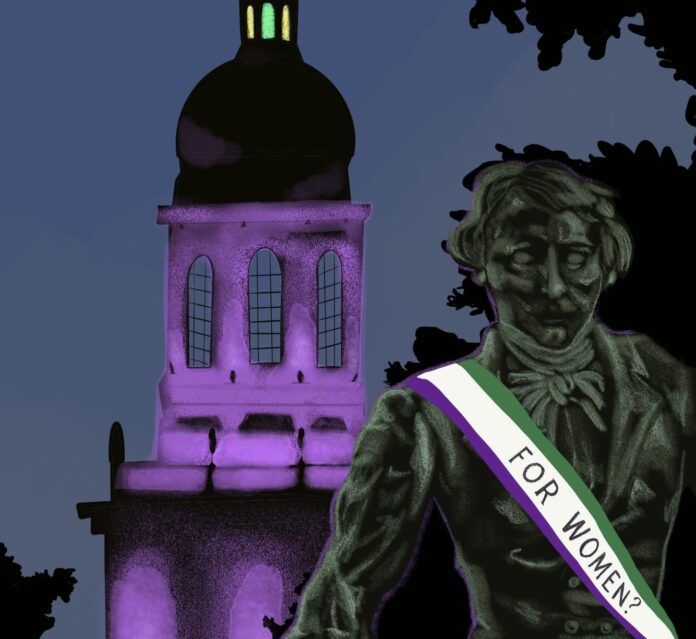By The Editorial Board
Like any and all heritage months, Women’s History Month gets the same criticism. People often express the idea that Women’s History Month excludes men, but it’s time we realized that this month is for all of us — an opportunity to reflect on our history and grow from it together.
After all, what’s good for women is good for men. The International Psychoanalytical Association explained that patriarchy actually hurts both genders. Because gender roles can be extremely pervasive, many women struggle with the idea that if they command a room or put their career above having a family, they will be seen as bossy or domineering. Conversely, patriarchy tries to convince men that vulnerability is a liability, not a strength, and that being sensitive or being a caregiver is feminine or weak.
The pressure to “man up” is a contributing factor to poor mental health among men, which has resulted in higher suicide rates than ever. According to the Centers for Disease Control and Prevention, there were over 39,000 deaths by suicide among American men in 2022, compared to about 10,000 among women.
In a world where men are seen as weak for opening up about their mental health or for expressing emotion, bottling these feelings up leads directly to the isolation and depression that is causing these suicide rates. According to the National Institutes of Health, men are far less likely to seek therapy than women who, on the other hand, are expected to be emotional or even “weak,” so there is more stigma in reaching out for help.
That isn’t to say that women aren’t hurt by patriarchy and gender roles; they are just impacted in different ways. The National Eating Disorders Association reported that in 2020, eating disorders were twice as prevalent among women than men. The underlying cause of this is usually unrealistic beauty standards and social media trends that encourage unhealthy habits.
Outdated, restrictive ideas like these affect all of us, so it’s time to get rid of the “this has nothing to do with me” mentality.
It isn’t just about stereotypes, either. Women’s history is American history, and this month gives us all an opportunity to reflect on how women have impacted our country for centuries. Women’s movements were closely intertwined with abolition and other civil rights movements, and women have been at the forefront of social change, even when they weren’t able to vote. Denying that Women’s History Month has anything to do with men ignores how women have fought for the rights of others — and that includes men of color and working class men.
During Women’s History Month, it doesn’t matter if you’re a woman or not. If you aren’t a woman, take the time to listen to the women in your life. Hear their perspectives and learn from their experiences. This month provides a great opportunity for all of us to reflect on parts of our society that are negatively affecting us and to work to move past it together.






